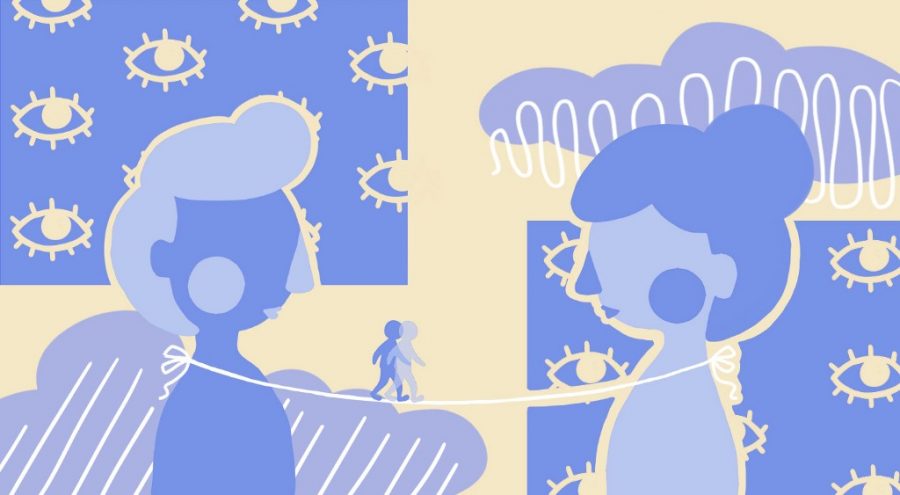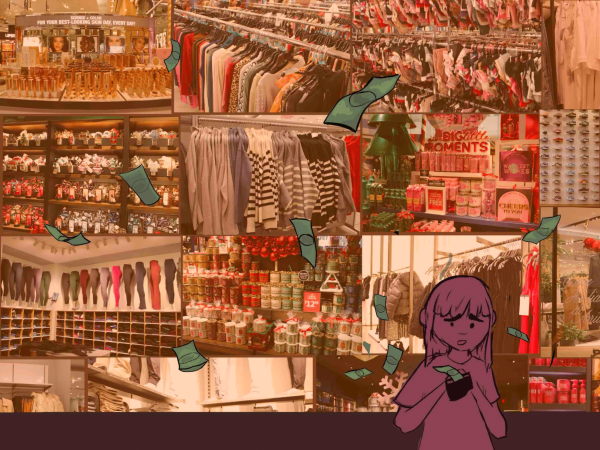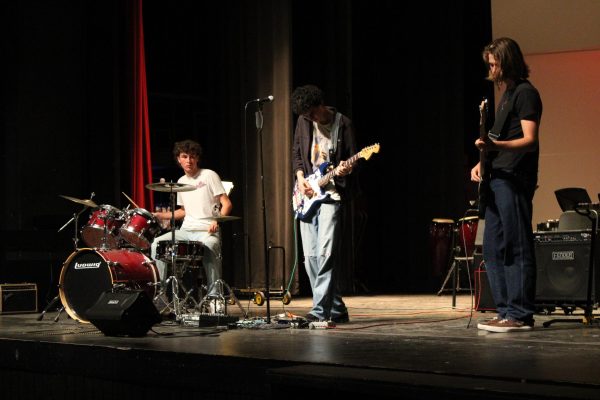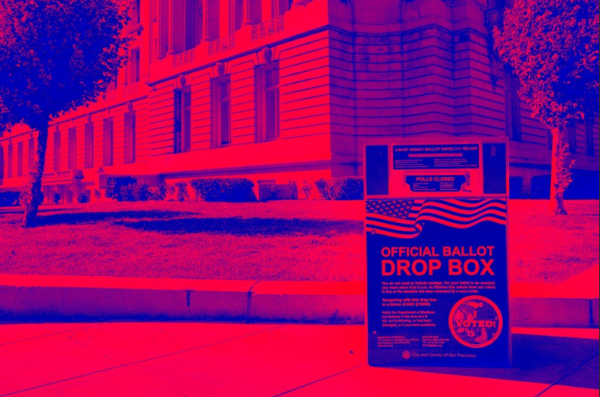Gender Redefined: What it’s like to be transgender or nonbinary at Lowell
Being misgendered has haunted Alex, a sophomore who identifies as non-binary and whose name has been changed for privacy reasons. “It’s like having a tattoo but you hate it,” said Alex. “You didn’t ask for the tattoo and it’s an awful tattoo but everyone identifies you by that.” Having a clear idea about one’s identity is important, but self-acceptance and gaining respect from others is difficult.
Although progress has been made over the past few decades to establish equal rights for transgender and genderqueer people, they still face difficulties today — even in a relatively progressive environment like Lowell.
Vincent is a transgender sophomore student at Lowell. Vincent’s real name has been changed for the purposes of this article as he is “going stealth” — a term that the transgender community uses meaning that the person is not publicly out. Vincent came out to his friends and family as transgender for the first time in 2015. Before coming out, Vincent felt confused, about both his feelings and identity. “It was sort of confusing at first,” he said. “I was very stressed for a long time and I didn’t know why. Once I figured out [I was transgender] I was extremely frustrated because I was being misgendered all the time and I couldn’t really tell people because in their minds they were correct.”
Alex also struggled with finding the confidence to come out. Alex, who was born a female, came out to their friends late in their freshman year. They weren’t even aware of the concept of being gender non-conforming until seventh grade and they never considered themself to be non-binary until the summer between eighth and ninth grade. Before coming out, Alex wasn’t comfortable in their skin, and identifying as a male or female did not feel right.
“It’s like having a tattoo but you hate it.”
Alex received a lot of support when they first came out to their best friend, who quickly adjusted to Alex’s pronoun preferences. However, Alex still feels uncomfortable opening up to certain people. “I don’t come out to people directly if I know I’m going to get backlash because I don’t want to have that conversation,” Alex said. “That’s why I haven’t had that conversation with my parents because I know that my mom won’t get it and I don’t want to deal with that.”
Vincent faced a different experience when coming out to friends and family. In freshman year, he began his social transition. As he explained, social transitions vary between each individual, whether it may be wearing different types of clothing, changing one’s hairstyle, or going out in public as one’s gender. “For me it’s been introducing myself as the name I’ve chosen for myself and the pronouns I’m comfortable with,” Vincent said.
Vincent had a very fortunate situation. His family and friends were supportive, and is transition has also been easier by the initiatives that Lowell and SFUSD take to make transgender students feel more welcome and accepted. “When we told the administration, we had a meeting with the vice principal and they asked me if there were any accommodations I needed,” Vincent said. The administration asked him about locker rooms, bathrooms and name changes. “The Wellness Center [also] called me and asked me if I needed anything,” he said.
According to SFUSD’s non-discrimination policy, the district is required to change a student’s official records if a student changes their name or gender if it aligns with California’s legal requirements to change their name and gender. As part of the requirements, public schools are required to allow students the right to dress in accordance with their gender identity.

Lowell has been trying to better accommodate for transgender and non-binary students. In 2015, the Gender-Sexuality Alliance Club achieved its goal of having the school create a gender-neutral bathroom, which was located at the far east end of the second floor. However, before the installation of the new gender-neutral restroom on the first floor, the second floor bathroom had many problems. “It’s very inaccessible as it’s the farthest away,” GSA president Gracelyn Barmore-Pooley said. “Not a lot of people know that it exists. It’s so far away that it’s not usually used as a bathroom.” At times it is used as a storage closet for cleaning supplies according to Barmore-Pooley.
Having more accessible gender-neutral bathrooms let’s those like Alex feel more comfortable at school. Alex did not know that a gender-neutral restroom even existed at the school until the end of their freshman year. However, the bathroom was almost unusable. “It’s dirty,” they said. “There’s a box in one of the stalls and it looks like it’s haunted. The lights flicker and the stalls come up to your chin. I’ve heard not so nice rumors about that place.”
With these problems in mind, GSA is improved the current situation. On October 25, Lowell Union Building Committee (UBC) and the administration met to discuss school-related topics. One of the issues brought up concerned gender-neutral student bathrooms. Ishibashi had plans to create a new one in addition to the existing one, and relayed his plans to the PTSA and Student Advocacy Committee (SAC).
On Nov. 2, GSA, Feminist Club and the SAC met together to discuss the recent bathroom plans that Principal Ishibashi had brought up during the meeting in October. Ishibashi’s plan was to convert the third floor bathroom to a girls’ bathroom and remove the current gender-neutral bathroom while converting the single-stalled girl’s bathroom by the nurse’s office into a gender neutral bathroom. During the meeting, Barmore-Pooley pointed out that according to Assembly Bill 1732 enacted in March 2017, all single-stall restrooms in government buildings are required to be gender-neutral. This raised the possible idea of converting staff bathrooms into gender-neutral bathrooms. However, it is difficult to carry out this proposal as it affects the number of staff bathrooms required by the UBC. As of December 13, the current gender neutral bathroom has been moved to the single-stalled bathroom near the nurse’s office. The old second floor gender-neutral bathroom is being renovated and will be converted into a women’s staff bathroom.
As a result of the old gender-neutral bathroom being not conveniently accessible, Alex had to use the girl’s bathroom, which makes them feel uncomfortable. Alex recalls several instances in which they have felt unwelcome being in the girl’s bathroom, such as being stared at or getting shocked looks from people.

Recently, controversies over gendered bathrooms have also erupted in several states. In February, Trump lifted protection given by the Obama administration that let transgender students use bathrooms and locker rooms that corresponded with the gender they identified with.
Issues with gendered restrooms are not only isolated to the United States. Alex recalls a situation during a vacation to England when they had to pay to use the restroom and the woman running the stand misgendered Alex. “As I walked into the girl’s bathroom she yelled at me, ‘Young man! You can’t go in there, what are you doing!’” Alex kept trying to tell the woman that they were not a man, but the woman kept insisting, making the situation uncomfortable for them.
These reactions are not only limited to bathrooms. Locker rooms are especially uncomfortable for Alex, who has to deal with people staring at them as they change. “Having people there side-eye you and then having them stare at you when you change…They have this look of shock. It’s uncomfortable,” Alex said.
These feelings of being seen as an outsider are all too well known for Alex, and they hope to see changes in gendered facilities, as well as more acceptance from their peers.

There are still misconceptions about transgender people. “There’s a lot of ignorance amongst the students around gender issues,” Vincent said. “They don’t know what it means to be transgender, they don’t know the difference between sex and gender and the different kinds of pronouns.” Due to misinformation about transgender people, he only comes out to those he knows will accept him.” I have the feeling that if I were to come out to some people there would be more negative reactions or I would be treated differently, which is part of the reason why I don’t,” he said.
Alex says that one of the biggest problems faced by the non-binary community is that many refuse to believe in it, and think of being genderqueer as a modern fad, which is untrue. “The ancient Greeks had androgynous genders,” Alex said. “Many Native American tribes had androgynous genders. It’s just because no one’s taught about it it just never comes up. Because it falls out of people’s line of expertise they blow it off as something that’s not true.”
Jamil Moises, who is a program coordinator at an LGBTQ center called Lyric, works closely with SFUSD middle and high schools. Moises, along with the entire organization, tries to create safer spaces and to provide resources to help LGBTQ youth. Many trans youth come to Lyric so that they can express themselves without being judged or discriminated against. Moises explained that part of the struggle that LGBTQ youth are facing is the fact that they are simply not being represented at school or in media. “My middle schoolers don’t see themselves reflected, not just in their history books but also in the people around them,” Moises said. “If you’re not reflected in just those basic units [of life], how are people going to know what services you need?”
By working with mainly SFUSD middle schoolers — some who already identify as agender, non-binary, and are even drag queens — who cannot express their identity because they will be bullied at school, Moises sees and understands the struggles many of these LGBTQ youth go through. “‘Trans’ is this umbrella word that is easily palatable to mainstream media, but within the trans experience — like with the cis experience — there’s so many ways to be trans,” Moises said. “Being in a space that recognizes who you are and doesn’t judge you for who you are is why a lot of youth I have worked with come here.”
“My middle schoolers don’t see themselves reflected, not just in their history books but also in the people around them. If you’re not reflected in just those basic units [of life], how are people going to know what services you need?”
One of the most effective and easiest ways to support the transgender community is educate yourself, according to Barmore-Pooley. “Transphobia comes from a place of ignorance, so educating yourself and others and bringing awareness allows for a more open and welcome community,” he said “It’s not the responsibility of trans people to educate you. There’s homophobia and rampant transphobia on a national scale from the government so it’s really important for me to bring awareness and education surrounding those issues.”
Listening to what types of support people need and putting those requests forward is one of the most important aspects. “It’s not just policies, it really goes back to the people and what are our values as humans and how are we showing that and respecting people who are different from us,” Moises said.
“‘Trans’ is this umbrella word that is easily palatable to mainstream media, but within the trans experience — like with the cis experience — there’s so many ways to be trans.”
There are several resources at Lowell for transgender and non-gender conforming students. The Wellness Center is safe space for them. Marcus Christmas, a Wellness Center counselor, said that Wellness addresses each student’s individual needs and supports trans and non-binary students by making sure that the preferred pronoun and name is being respected within the school system and informing them of their rights, such as accessing the restroom that corresponds with their gender identity. “It’s important that the needs of our students are specific to their experience,” Christmas said. “They may need support beyond their gender identity.”
GSA is also very active in promoting equity for the LGBTQ community. This year, Barmore-Pooley wants to address issues regarding locker rooms and bathrooms, and to educate others about topics relating to the community. She wants to make GSA a safe and inclusive space for those who want to talk about their experiences as being part of the LGBTQ community. “In our meetings we say our pronouns when we introduce ourselves. It’s a very different space than most of the world,” she said.
Another basis of support for Vincent has been the teachers who he’s chosen to come out to. “Last year [all of my teachers knew] because the school district forgot to change my picture on Schoolloop,” Vincent said. “But this year only a few of them know.” Vincent said that he would tell teachers that he was transgender if, for example, a project in which groups were to be assigned by gender.
Although he does not feel a stronger connection to the teachers he has come out to, Vincent does value the support he gets. “I had a teacher last year who asked me my preferred pronouns and that was nice but they don’t talk about [the fact that I’m transgender] much which is fine,” Vincent said.
Some teachers have made strides to educate the student body about issues of gender and sexuality. This year’s new drama teacher, Annemarie Ullman, has used drama and theater as a way to advocate for social justice. This year’s fall play, “Twelfth Night,” focused on the concept of love and gender. Ullman chose Twelfth Night in order to change the way one might think about notions of love and gender. “I hope that by watching plays like this, people leave differently from the way they came in,” she said. “If someone can watch the play and leave with having their mind opened a little bit about the importance of gender, hopefully that will help them progress with their thought process.”

Modern World History and American Democracy teacher Lauretta Komlos advocates for teaching gay rights, transgender and non-binary topics even if they are not in the curriculum. “Part of it is that it hasn’t been seen traditionally as a historic movement and it has come into civil rights in the very recent past,” Komlos said. “Social studies has to keep up with the times.” Komlos believes that transgender and non-binary history should be taught as part of American civil rights, as teaching these subjects would make transgender and genderqueer students feel more empowered would also hopefully open more students to the subject. Beyond Lowell, the Bay Area has numerous LGBTQ centers and conferences that support and educate the public about the community.
Vincent has met many other transgender teens through conferences. This summer, he attended the Gender Spectrum Conference which was held in Saint Mary’s College in Moraga. The conference is held for transgender and non-binary youth to learn about others’ experiences and connect with others. The convention held a myriad of seminars discussing transgender topics such as activism and coming out, and hosted panels of transgender adults and teenagers who talked about their experiences. Last year, Barmore-Pooley was part of the Berkeley-based Gender Spectrum Youth Council, which focused on trans and non-binary issues.
Another local resource is Lyric, which has internships for LGBTQ and undocumented immigrants. Several Lowell students have been interns at the organization. Lyric provides support and one-on-one guidance for youth ranging from SFUSD students to those who are homeless and some youth from different parts of the Bay Area. Their work includes promoting transgender to LGBTQ people of color’s rights. The organization also holds support groups which are run by their youth advocates. These groups focus on topics relating to setting boundaries, navigating conflicts, and they even do art projects and set up events.
“It’s not the responsibility of trans people to educate you.”
For those who are struggling, there are ways to make life better. Vincent said that even just coming out to a few friends makes life much more positive. “Life does get easier when you come out because you can start to affirm yourself or your gender even if it’s just a few friends who call you by the proper name and pronouns,” he said.
Alex believes that accepting yourself first is the most important. “You are who you are and you can’t change that so you shouldn’t hate yourself for it,” they said. “If you’re not ready to tell other people or not even sure, that’s okay. Validation doesn’t come from other people. Validation comes from you being yourself and that’s what’s really important.”










